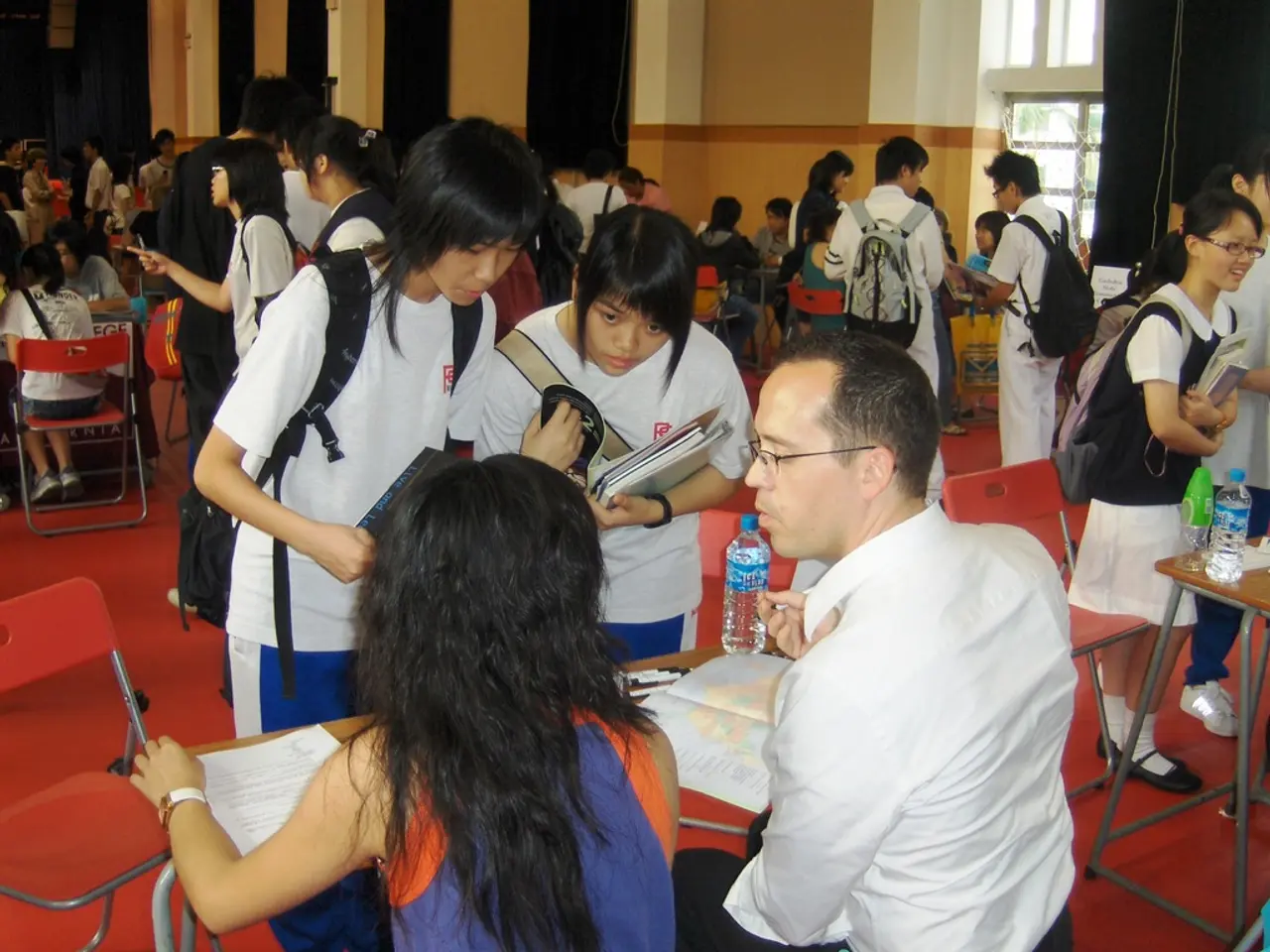Effort intensifies to Prevent Tragic Student Suicides
The Supreme Court of India has taken a significant step towards addressing the rising concern of student suicides and mental health issues in the country. The court has established a National Task Force to investigate the root causes of these tragedies and propose a long-term regulatory framework to prevent them.
The Task Force's mandate extends beyond the specific case of caste-based discrimination, as the court is addressing the broader issue of student mental health. The investigation will cover various factors contributing to the deteriorating mental health of students, including lifestyle choices such as excessive use of social media and the intense competition to secure admission into premium institutions.
The Task Force has proposed several specific measures and initiatives to address the rising incidence of student suicides due to mental health issues. These include an investigation and regulatory framework, mental health policies in institutions, the appointment of qualified mental health professionals, confidential psychological support systems, training and sensitization for teachers and parents, mechanisms to address bullying and harassment, restriction of access to means of suicide, surprise inspections, working groups for comprehensive analysis, interim and final reporting, complementary judicial actions, and CBI investigations for suspicious suicide cases.
The initiatives represent a multi-pronged approach combining institutional reform, mental health support, legal action, and community involvement to curb student suicides and promote mental well-being in India’s education system.
The court's decision is commendable and marks a crucial step in initiating a conversation about improving the mental health of students in India. However, it is worth noting that despite multiple studies warning of the harmful effects of social media content, the Central government has not taken any steps to regulate or discourage features on social media that negatively impact the mental health of children.
Media organizations have been highlighting the growing pressure on students from parents, peers, teachers, and society at large to achieve success as defined by societal consensus. A change in the mindset of parents, society, government, and children is required to improve the mental health of future generations.
The Supreme Court's National Task Force will undoubtedly contribute significantly to understanding and addressing the complex issue of student suicides and mental health in India. The Task Force's comprehensive approach, combined with community involvement and legal action, offers hope for a brighter future for India's students.
[References] 1. The Indian Express: https://indianexpress.com/article/explained/student-suicides-supreme-court-national-task-force-mental-health-7355591/ 2. The Hindu: https://www.thehindu.com/news/national/supreme-court-to-constitute-national-task-force-to-address-student-suicides/article36442892.ece 3. LiveMint: https://www.livemint.com/news/india/supreme-court-to-set-up-national-task-force-to-address-student-suicides-11617576473854.html 4. The Economic Times: https://economictimes.indiatimes.com/news/politics-and-nation/supreme-court-to-set-up-national-task-force-to-address-student-suicides/articleshow/87893977.cms 5. The Print: https://theprint.in/india/supreme-court-constitutes-national-task-force-to-address-student-suicides/514547/
The Supreme Court's National Task Force aims to investigate factors affecting the mental health of students, including the impact of social media usage. This comprehensive approach also includes mental health policies, qualified mental health professionals, and support systems in educational institutions.
The National Task Force's efforts, combined with community involvement and legal action, may potentially lead to a shift in mindsets to improve the mental health of future generations in India, addressing concerns related to both health-and-wellness and mental-health.




